Lose 10 Pounds in 2 Weeks: A Step-by-Step Guide
There is a healthy way to lose five pounds a week, says a weight loss expert.
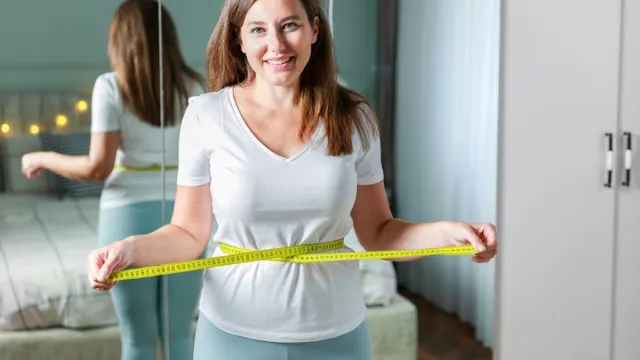
Most experts don't recommend rapid weight loss, but that doesn't mean it isn't possible. "Losing ten pounds in two weeks is not an unrealistic goal," Alejandro Lopez, MD, ALO Bariatrics, explains to Best Life. "The main objective of weight loss is and should be improving your habits and maintaining them permanently. It's not only the weight loss that benefits our body but also the decrease in body fat percentage."
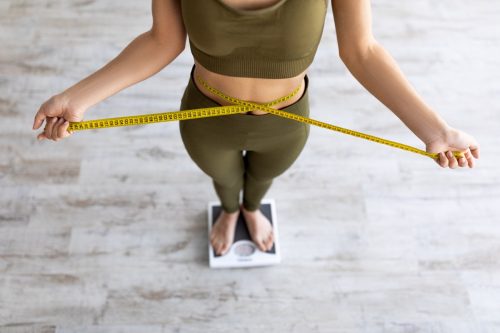
A realistic goal would be to acknowledge your current nutritional problems and improve them one step at a time, Dr. Lopez explains. "It is far more critical for me as a physician that you introduce these changes slowly." He says that according to research, your focus should be decreasing intra-abdominal fat. "When starting healthier habits, it is easier to lose more weight and sooner in heavier people with more than 50 BMI, but it is also easier for them to gain weight if they don't keep these good habits," he adds. Here are the steps to losing 10 pounds in two week:

The first step to losing 10 pounds in two weeks is documenting your food intake. "Make a nutritional diary where you can write down every single thing and the hour of the day that you consume it," suggests Dr. Lopez. "With this technique, we can start building a conscience around the amounts and quality of food consumed."
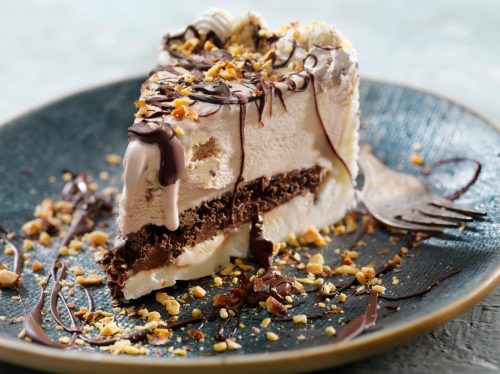
The next step is completely overhauling your diet. "Start replacing the worst parts of your diet," Dr. Lopez says. For example, cut out fried foods, candies, chocolates, cake, white bread, sugar, cookies, and foods that contain sugar, using sugar substitutes like Stevia instead. "Dairy products must be skimmed," he adds. Also, "stop eating when you feel satisfied, not until you feel full."
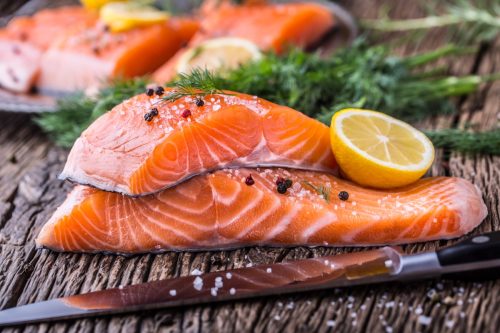
Because protein is the building block of muscle mass, he suggests amping up your intake. "First, eat foods that contain protein (fish, chicken, egg, etc.) and vitamins (vegetables) so that you get satisfied with the best quality type of food, and leave at the end (or don't eat those if you're comfortable) carbs and fats," he says.

Next, prioritize hydration. "Don't forget to drink water," advises Dr. Lopez. "It is easier to drink your calories than to eat them, so you must avoid drinks with a lot of calories because, with liquids, you'll hardly feel full. Avoid juices or sodas with sugar, even natural fluids. If you drink those, you can mix it with water."

Now that you have your diet under control, "increase exercise consistently and make a little extra effort every day," encourages Dr. Lopez. "Functional exercise is the best way to improve muscle mass, flexibility, and cardio in full-body movements." He suggests activities like walking, jogging, swimming, or HIIT workouts.
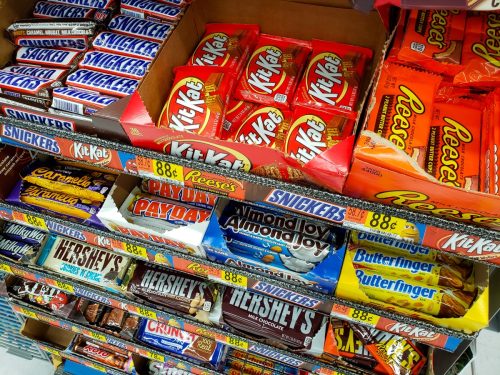
Finally, continue making healthy changes. "Keep removing something unhealthy from your diet every week," says Dr. Lopez. If you don't know how to do this, he suggests getting professional assistance to increase the quality of your food with a nutritionist. "Steady weight loss will always be better compared to extreme weight loss in the short run," he says.
RELATED: 11 Easy Things You Can Do to Slow Down Aging
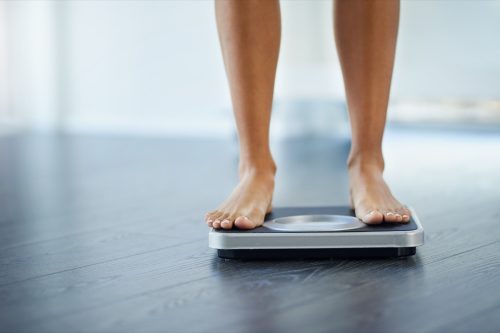
Finally, remember that a regular and healthy weight is a balance between a healthy intake of calories, food in the correct portions, and body energy expenditure. "Age decreases the expenditure of basal energy and reduces the absorption of some specific nutrients that need to be increased in our everyday diet. So we need to decrease food with high-calorie values and improve high-quality food to prevent weight increase and health decrease," Dr. Lopez concludes.





















